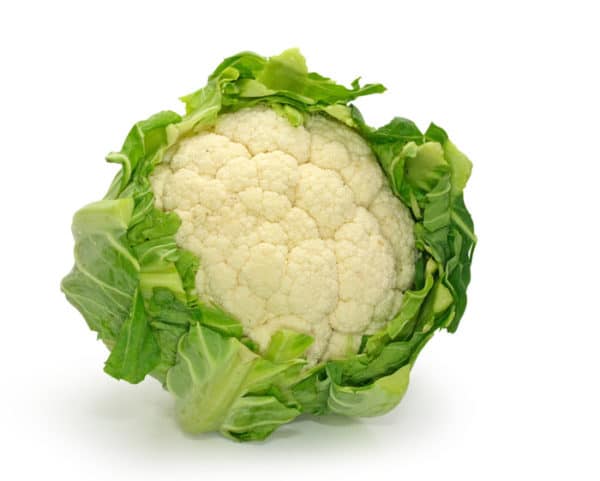
I did enjoy hearing from a few of you on the topic of oxalate sensitivity, my previous post on this topic.
Today I will be talking about something called genetic polymorphism, and specifically how a particular polymorphism makes it hard for the body to excrete sulfur (or utilize it in beneficial ways).
This is part 2 of my series on, “When Eating More Greens is Not a Good Idea”. Again, the five examples I am discussing with you where greens may cause worsening symptoms in your client are rare…but it is still good to be aware of – and be able to recognize – these signs in case you come across them.
How would a genetic polymorphism impact the ability of your client to eat greens?
Everyone has their own unique DNA encoding, right? And each of us also – due to that unique coding – has our own specific responses to various chemicals and toxins, especially in regards to how well we methylate (eliminate certain toxins).
You may come across a client who does not have the enzyme MTHFR, for example. Mutations in the MTHFR gene can result in decreased activity of the enzyme, including the ability to eliminate toxins properly. A lot of people are born with a sluggish methylation pathway (some 40% of the population). They have a defect in the gene, called a SNP (a single nucleotide polymorphism) that helps methylation. What this means is they can’t take their liver through the complete methylation pathway; or, said a simpler way, they can’t fully detox!
One example might be with heavy metals, as well as excess hormones and environmental toxins of all kinds, including molds. For some people toxins can build-up and they may need some additional support. Other genetic mutations and polymorphisms can occur.
What causes a polymorphism in the first place? It is thought to be a way for nature to simply increase diversity. Polymorphism changes DNA solely for the purpose of diversity (versus, “survival of the fittest”, true genetic mutations). People have different blood types, for example. That is an example of a genetic polymorphism. A polar bear being white ensures its survival.
An example of a polymorphism you may see is something called CBS (Cystathionine Beta Synthase). The CBS pathway is essential for many biochemical processes. And normally, within this pathway, sulfur amino acids are removed if they become in excess.
However, sometimes due to abnormalities within the CBS or with other genetic methylation pathways, an issue causing excessive pooling of sulfur can occur.
If your client has experienced cravings for sulfur-rich foods, or sensitivity to sulfur-rich foods, this may warrant investigating whether they have a CBS up-regulation issue.

Opt to have your client eat low-sulfur veggies for a while as a test. This includes romaine lettuce, cucumbers, carrots, and celery.
There are also lab tests that can be taken, an example being 23andMe.
Again, the detective in you has to come forward and ask questions.
So what is another instance where your client might have an issue with additional greens? In Part 3 of this series I will be talking about your client’s sensitivity to isothiocyanate.
If you are interesting in learning more about genetic polymorphisms, you may wish to consider registering for my NEPT program. We offer over 20 hours worth of training and mentorship on nutrigenomics and SNPs that can impact your client’s ability to heal.
Share this:

Are you feeling stuck?
Do you feel as if something is missing from your practice that's keeping you from delivering breakthrough outcomes for your clients?.
Recent Posts
Our Programs
Nutritional Endocrinology Practitioner Training (NEPT)
The Mastery and Certification tier is our flagship program and provides everything you need to feel confident as a practitioner who knows how to get results that lead to healthy and happy clients.
Functional Assessment Mastery
Explore the relationships between the most important hormones and their relationship with nutrition.
Functional Nutrition Mastery
Learn how to support your clients to eat and supplement in a way that reduces and eliminates chronic symptoms.
Medical Disclaimer: The information on this website is not intended to replace a one-on-one relationship with a qualified health care professional and is not intended as medical advice. It is intended as a sharing of knowledge and information from the research and experience of Dr. Ritamarie Loscalzo, drritamarie.com, and the experts who have contributed. We encourage you to make your own health care decisions based upon your research and in partnership with a qualified health care professional.
Disclosure: Sometimes (but not always), when I share resources in my programs, newsletter, and on my website, I'm using an affiliate link, which means I do make money if you buy. My credibility is extremely important to me; therefore, I only endorse the products, services, and people I believe in. DrRitamarie.com is independently owned and the opinions expressed here are my own.
Click here to see our Privacy Policy.












Dear Dr,
The matter is too exciting one. It will be highly appreciated if the Video files are sent, please !
Hi, Dr. Banga, You’re right! This is exciting to have knowledge of how certain foods can affect our body, and how to tailor a diet for our client’s own particular person.
I’m not sure which videos you are speaking of, but I know you have access to many videos through your connection with us, starting with the elixirs. If you’re not finding them in your email inbox, make sure to look into your spam file. Always feel free to let us know if you’re not finding things, so we can resend them to you.
Keep up the good work!
[…] for your comments on my previous post on genetic polymorphism, as well as your feedback on the 23andMe test. People were very interested in […]